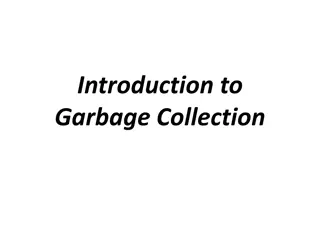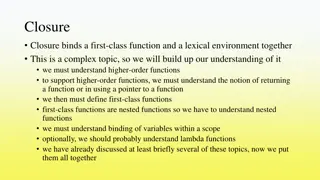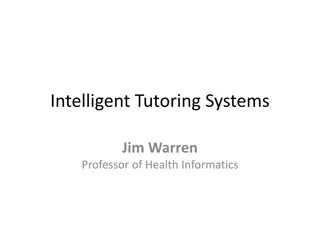Understanding Garbage Collection in Programming
Garbage collection automates memory reclamation, freeing programmers from manual memory deallocation tasks. This process enhances program reliability, reduces errors, and decouples memory management from other software engineering concerns. Originating in LISP in 1960, garbage collection has become
0 views • 25 slides
Understanding Closures, Lambda Functions, and Higher-Order Functions in Programming
In programming, closures bind functions and lexical environments, while lambda functions are nameless and used by higher-order functions. Higher-order functions operate by applying other functions, such as map and fold functions. Example implementations in LISP demonstrate how these concepts are uti
0 views • 16 slides
Intelligent Tutoring Systems: Enhancing Learning through Technology
Explore the world of Intelligent Tutoring Systems (ITS) with Jim Warren, a Professor of Health Informatics. Learn about the dimensions of ITS, examples like AutoTutor and LISP tutor, and implications for the future of learning and MOOCs. Delve into student modeling basics, methods to acquire/update
0 views • 22 slides


